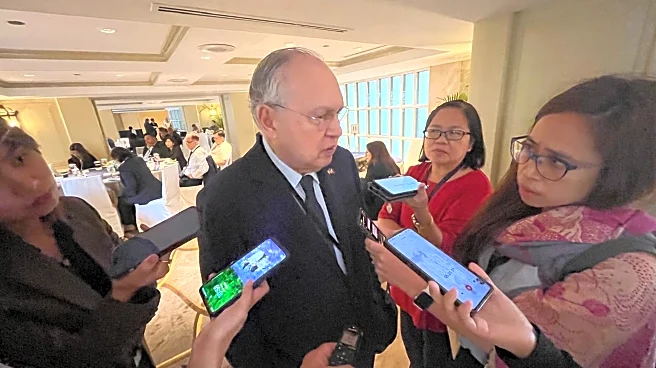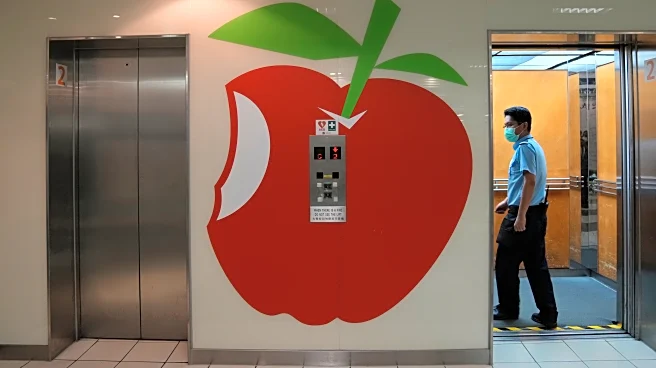Rapid Read • 8 min read
Lebanon is experiencing a severe economic crisis, described by the World Bank as one of the most severe globally since the mid-19th century. The Lebanese pound has lost 90% of its value, leading to a significant illicit market for currency trading. The central bank, Banque du Liban, recently adjusted the official exchange rate from LBP 1,507 to LBP 15,000 per U.S. dollar. This economic turmoil is compounded by political challenges, including a presidential vacuum following Michel Aoun's departure from office. The caretaker government led by Najib Miqati is tasked with convincing international creditors to release emergency funds necessary for recovery, contingent on implementing structural reforms.
AD
The economic crisis in Lebanon has profound implications for its citizens, with rising living costs and stagflation affecting daily life. The political stalemate further exacerbates the situation, hindering necessary reforms and international aid. The inability to stabilize the economy and government could lead to increased social unrest and further deterioration of living conditions. The crisis also impacts regional stability, as Lebanon's economic and political health is crucial for Middle Eastern dynamics. Stakeholders, including international creditors and neighboring countries, are closely monitoring Lebanon's ability to navigate these challenges.
Lebanon's immediate future depends on the caretaker government's ability to implement structural reforms and secure international financial support. The ongoing presidential vacuum poses a significant obstacle to these efforts. The re-initiation of the investigation into the Beirut Port explosion by Judge Tareq Bitar may also influence political dynamics. The international community's response, particularly from creditors, will be crucial in determining Lebanon's path forward. Domestic political factions must find common ground to address the crisis effectively.
The crisis in Lebanon highlights the deep-rooted issues of political sectarianism and economic mismanagement. The lack of social trust and cooperation among political elites has stalled progress and reform. The situation underscores the need for a new governance model that prioritizes social and economic justice. The role of civil society, including advocacy groups, remains vital in pushing for change and accountability. Long-term solutions require addressing systemic issues and fostering a more inclusive political environment.
AD
More Stories You Might Enjoy











